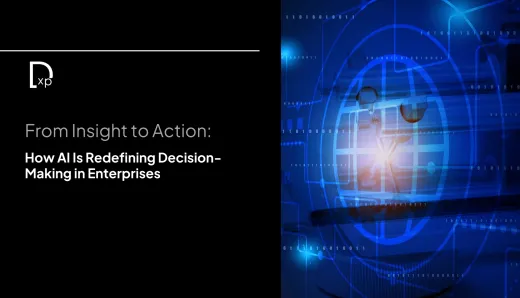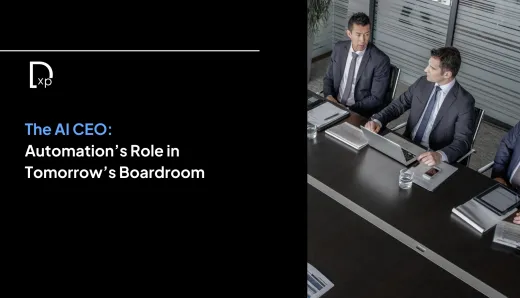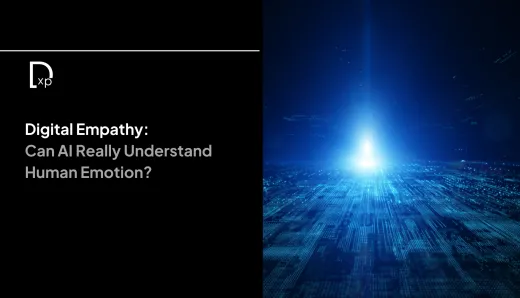The Future of Work: How AI Will Transform Job Roles and Workforce Dynamics

We’re standing at the edge of something seismic.
This isn’t about machines replacing people. It’s about people who choose to evolve—and those who don’t. It’s about how we decide to work with the machines, not against them. And it’s about leaders who can read the tea leaves and those still clinging to yesterday’s job descriptions.
The Future of AI is not looming. It’s here, seeping into workflows, rewriting job roles, and quietly dismantling the structure of work as we’ve known it.
AI won’t just change how we do the work. It’s going to redefine who does the work, how decisions are made, and what "value" looks like in tomorrow’s workplace. For CMOs, CHROs, and every C-level leader trying to decode what comes next, it’s time to stop asking if AI will change the game. It already has.
Let’s talk about what happens next.
The Work Is Changing—Whether You're Ready or Not
In a world that once rewarded repetition and precision, AI is now outperforming humans at both. So the work we once thought of as essential—data sorting, scheduling, even drafting content—is becoming ambient noise in the background of smarter systems.
The most agile organizations aren’t resisting this shift. They’re redesigning job roles, workflows, and incentive structures around it. They’re moving from job descriptions to problem-solving mandates. From job titles to outcomes.
The Future of AI is turning managers into orchestrators, marketers into narrative architects, and customer service reps into brand experience strategists. The rigid job boxes we once sat in are dissolving. In their place are fluid roles that evolve as AI evolves.
Skills Matter Less Than Capabilities
Resumes don’t matter when a machine can learn your skill in five minutes.
The real differentiator now is not whether someone can code or write or analyze—it’s whether they can adapt. Whether they can interpret insights, ask the right questions, and build systems that learn alongside them.
The Future of AI demands a workforce that’s not just trainable, but transformational. Employees must be re-skilled not only to use new tools, but to think differently about what the work is. Creativity, emotional intelligence, storytelling—these are not soft skills. They are survival skills.
And for enterprises, the new war for talent isn’t about hiring people who know what to do—it’s about hiring those who are ready to discover it alongside the machines.
Culture Is the Competitive Edge
We’re seeing it already. AI doesn’t kill culture. But it does expose it.
When employees don’t know why their job exists anymore, or what it means to “perform” when an algorithm does it faster, culture becomes the glue—or the gasoline. The companies thriving in this next wave aren’t the ones who gave everyone a chatbot. They’re the ones that gave their people a new narrative.
In the Future of AI, it’s the story you tell your team that keeps them aligned. It’s the leadership posture that invites curiosity instead of panic. And it’s the culture that rewards experimentation, even when the experiments don’t work.
If AI becomes the engine, then culture becomes the steering wheel.
The Rise of Human + Machine Teams
The smartest CMOs in the world aren’t just optimizing campaigns—they’re rethinking what it means to build a team.
Why hire ten copywriters when one can lead a generative content engine? Why silo data analysts when everyone on the team can ask questions of the same AI model?
The Future of AI doesn’t replace humans. It amplifies the right ones. The ones who know how to frame problems, interpret outputs, and guide systems toward insight instead of just information.
We’re not building teams of specialists anymore. We’re building teams of orchestrators. Strategists who know what levers to pull and when to let the AI do the heavy lifting.
Redefining Productivity, Rethinking Performance
Productivity used to be about outputs. Now it’s about impact.
When AI tools increase baseline efficiency across the board, performance metrics have to change. It's no longer about how many emails someone writes or spreadsheets they touch. It’s about what changed because of what they created. What moved. What shifted.
The organizations winning in the next wave will be those that abandon old productivity metrics and start measuring influence, clarity, and momentum.
And in this new world, AI is not your competitor. It’s your co-pilot.
The Leaders Who Will Thrive
The leaders who will shape the next chapter of work aren’t the ones obsessed with the latest tools. They’re the ones who understand the story that AI is telling us—about speed, possibility, and impermanence.
The Future of AI is not a headline or a buzzword. It’s a lens. It’s how we begin to ask different questions. Not “how do we protect what we’ve built?” but “how do we build something worth protecting now?”
The executives who succeed won’t be those who automate the fastest. They’ll be the ones who build systems where humans thrive because of AI, not in spite of it.
They’ll be the ones who see that the future of work is not about jobs. It’s about journeys.
Final Thought: Let Go of the Map, Follow the Compass
The organizations still clinging to job hierarchies and quarterly planning cycles are building maps for landscapes that no longer exist.
The Future of AI requires a compass—a directional understanding of where we’re going and a willingness to adapt the path along the way.
For the workforce, this means letting go of rigid roles and embracing curiosity.
For leaders, it means designing for agility, not certainty.
And for brands that want to matter in this future, it means building teams that don’t just survive change—but shape it.




